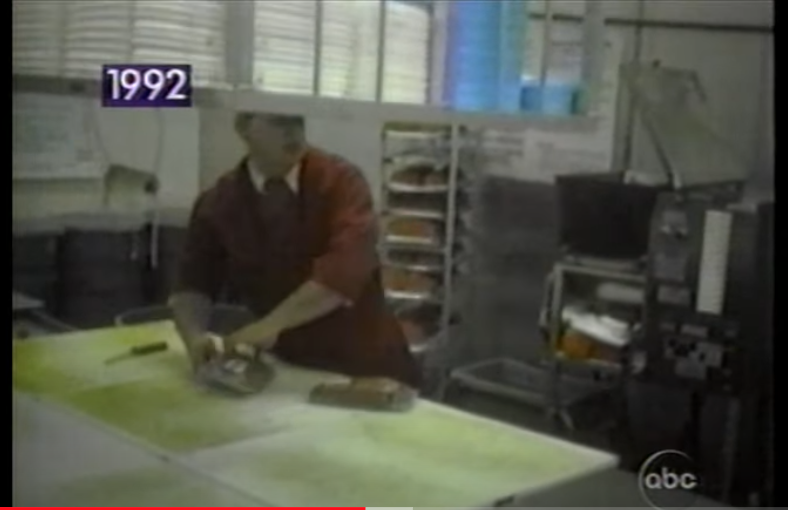In Food Lion, Inc. v. Capital Cities/ABC, Inc. the U.S. Court of Appeals for the 4th Circuit ruled that two undercover journalists who lied to obtain jobs at Food Lion and then videotaped unsafe food handling practices could be held liable for violating their duty of loyalty to their employer and for trespass but could not be held liable for fraud and unfair trade practices.
ABC producers for PrimeTime Live, Lynn Dale and Susan Barnett, used false resumes and fake identities to obtain jobs at Food Lion stores in South Carolina and North Carolina. One obtained a job as a deli wrapper and another as a meat handler. They and others at PrimeTime Live had heard reports that Food Lion was engaging in unsanitary meat-handling practices and had decided they needed to get first-hand evidence.
Hidden cameras exposed food-handling at Food Lion stores
Dale and Barnett used hidden cameras to record food-handling practices at the Food Lion stores, including practices such as repackage meat and chicken with new expiration dates after the original dates had expired. The video was broadcast in November 1992 as part of an investigation by PrimeTime Live. Food Lion’s stock plummeted after the news story aired.
Food Lion sued ABC and the PrimeTime Live producers and reporters, but not for defamation, which would require a showing that the broadcast was untrue. The lawsuit instead focused on the methods ABC used to obtain the video footage. They sued for fraud, unfair trade practices, breach of loyalty and trespass.
A jury in federal district court found the media company liable for fraud and the two undercover producers additionally liable for trespass and breach of loyalty. The damage award included a nearly $5.5 million in punitive damages for the fraud claim against ABC and the producers, but the district court reduced it to $315,000. The court also assessed $2 in nominal damages for breach of loyalty and trespass.
4th Circuit rejected fraud claim, punitive damages
On appeal, the 4th Circuit upheld the ruling that the two undercover reporters breached their duty of loyalty and trespassed when they went beyond their duties as employees and engaged in the surreptitious news gathering activities. The 4th Circuit reasoned that under the U.S. Supreme Court’s decision Cohen v. Cowles (1992), the press is subject to generally applicable laws and the duty of loyalty and trespass torts did not single out the press.
However, the 4th Circuit reasoned that the fraud claim against all ABC defendants could not stand and, thus, rejected the punitive damage award. The appeals court reasoned that Food Lion could not show a required element of a fraud claim — that Food Lion was injured as a result of reasonably relying on false representations made by the ABC employees. Food Lion’s main claim for fraud damages related to the routine costs associated with hiring a new employee because the two reporters got their jobs with the intent to quit only a few weeks later. The appeals court reasoned that in a state in which the law allows at-will employment, the termination of that employment can be any reason by either party at either time, so it was not reasonable to assume that an employee would work for any particular length of time.
One judge partially dissented and would have upheld the punitive damage award against Food Lion and the finding of fraud.
Many free-press advocates lauded the decision of the 4th Circuit because the appeals court eliminated the significant liability from the fraud claim and only upheld minimal damages for the breach of loyalty and trespass claims. Many of these advocates had worried that the district court decision would chill investigative journalism.
David L. Hudson, Jr. is a law professor at Belmont University and publishes widely on First Amendment topics.

